The Words That Maketh Murder

con qualche dubbio
LE PAROLE CHE CAUSANO L'OMICIDIO
(Continues)
(Continues)
2013/9/23 - 23:31
Oesterheld
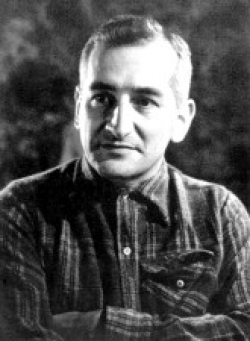
Chanson italienne – Oesterheld – Rocco Rosignoli – 2013
Texte et musique de Rocco Rosignoli
Une des plus belles œuvres dédiées à la liberté et à la résistance est une bande dessinée : El Eternauta (L'Éternaute). Ce n'est pas un hasard s'il sortit dans les années 1950 en se fondant sur l'expérience européenne de résistance au nazisme. La science-fiction de matrice américaine a été identifiée comme une sublimation de la paranoïa collective des États-Unis, dans lesquels l'Extraterrestre était un alias du communiste. L'Eternauta, œuvre argentine, se place par contre sur un autre versant ; l'invasion extraterrestre est seulement un scénario, dans lequel les hommes sont les protagonistes. L'humanité, au bord du désastre, réussit à donner le meilleur d'elle-même dans la tentative de résister à l'envahisseur.
Cette histoire de science-fiction a été vue comme une sorte de prophétie, dans laquelle... (Continues)
Texte et musique de Rocco Rosignoli
Une des plus belles œuvres dédiées à la liberté et à la résistance est une bande dessinée : El Eternauta (L'Éternaute). Ce n'est pas un hasard s'il sortit dans les années 1950 en se fondant sur l'expérience européenne de résistance au nazisme. La science-fiction de matrice américaine a été identifiée comme une sublimation de la paranoïa collective des États-Unis, dans lesquels l'Extraterrestre était un alias du communiste. L'Eternauta, œuvre argentine, se place par contre sur un autre versant ; l'invasion extraterrestre est seulement un scénario, dans lequel les hommes sont les protagonistes. L'humanité, au bord du désastre, réussit à donner le meilleur d'elle-même dans la tentative de résister à l'envahisseur.
Cette histoire de science-fiction a été vue comme une sorte de prophétie, dans laquelle... (Continues)
OESTERHELD
(Continues)
(Continues)
Contributed by Marco Valdo M.I. 2013/9/23 - 22:24
Paolo Conte: Bartali
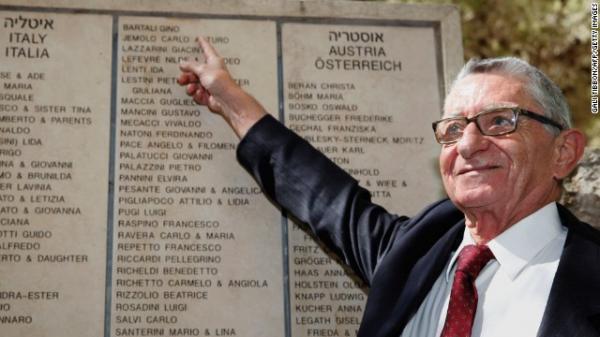
1979
Un gelato al limon
Testo e musica di Paolo Conte
interpretata anche da Enzo Jannacci e Bruno Lauzi.
Gino Bartali "Giusto tra le nazioni".
Salvò quasi mille ebrei dai nazisti
Il ciclista toscano rischiò la vita per salvare quella dei perseguitati dai campi di concentramento. Usando la sua bicicletta per nascondere documenti falsi, il campione salvò ottocento persone. Israele ha riconosciuto il suo impegno e ha in programma una cerimonia in Italia in suo onore anche in Italia
TEL AVIV - Gino Bartali, il grande campione di ciclismo, è stato dichiarato 'Giusto tra le nazioni' dallo Yad Vashem, il memoriale ufficiale israeliano delle vittime dell'olocausto fondato nel 1953. La nomina di 'Giusto tra le nazioni' è un riconoscimento per i non-ebrei che hanno rischiato la vita per salvare quella anche di un solo ebreo durante le persecuzioni naziste.
Bartali, oltre ad essere un campione... (Continues)
Un gelato al limon
Testo e musica di Paolo Conte
interpretata anche da Enzo Jannacci e Bruno Lauzi.
Gino Bartali "Giusto tra le nazioni".
Salvò quasi mille ebrei dai nazisti
Il ciclista toscano rischiò la vita per salvare quella dei perseguitati dai campi di concentramento. Usando la sua bicicletta per nascondere documenti falsi, il campione salvò ottocento persone. Israele ha riconosciuto il suo impegno e ha in programma una cerimonia in Italia in suo onore anche in Italia
TEL AVIV - Gino Bartali, il grande campione di ciclismo, è stato dichiarato 'Giusto tra le nazioni' dallo Yad Vashem, il memoriale ufficiale israeliano delle vittime dell'olocausto fondato nel 1953. La nomina di 'Giusto tra le nazioni' è un riconoscimento per i non-ebrei che hanno rischiato la vita per salvare quella anche di un solo ebreo durante le persecuzioni naziste.
Bartali, oltre ad essere un campione... (Continues)
Za za za zaz!
(Continues)
(Continues)
Contributed by DoNQuijote82 2013/9/23 - 20:47
Let England Shake: l’Inghilterra e la guerra
Antiwar Songs Blog

Let England Shake è un album del 2011, considerato il capolavoro della maturità della cantautrice inglese PJ Harvey. Lo presentiamo qui con l’aiuto di un articolo di Rachele Cinarelli apparso su Carmilla online. Sul sito trovate tutti i testi e la traduzione quasi integrale. A 41 anni, PJ Harvey ha scritto il suo capolavoro. Si poteva […]
Antiwar Songs Staff 2013-09-23 18:38:00
Imagine

ALBANESE / ALBANIAN
Versione albanese. È ripresa da lyricstranslate.com ma, come spesso accade, l'ortografia è approssimativa (eliminazione dei segni diacritici, prassi comune per certe lingue in Rete). I diacritici sono stati ripristinati (e l'ortografia controllata) sulla scorta dell'ottimo Dizionario di albanese di Yllqa Qarri, edizioni Hoepli, 2008.
Albanian translation. Reproduced from lyricstranslate.com but, as it often happens, the spelling is not correct (all diacritical marks have been neglected, a common practice for certain languages on the Web). All marks have been restored (after spelling check) according to the excellent Dizionario di albanese by Yllqa Qarri, edizioni Hoepli, 2008. [RV]
Albanian translation. Reproduced from lyricstranslate.com but, as it often happens, the spelling is not correct (all diacritical marks have been neglected, a common practice for certain languages on the Web). All marks have been restored (after spelling check) according to the excellent Dizionario di albanese by Yllqa Qarri, edizioni Hoepli, 2008. [RV]
IMAGJINO
(Continues)
(Continues)
Contributed by Riccardo Venturi 2013/9/23 - 15:40
Animal Liberation

Ho riscritto il ritornello e aggiunto la parte finale dei cori...
Federico 2013/9/23 - 12:13
Smisurata preghiera

Lo scrittore Alvaro Mutis, tra i maestri della letteratura ispanoamericana, è morto ieri in Messico all'età di 90 anni. Lo hanno annunciato oggi fonti ufficiali messicane. «Piangiamo la morte dello scrittore Alvaro Mutis», ha annunciato su Twitter il Consiglio nazionale della Cultura e delle Arti. Carmen Miracle, moglie dello scrittore, ha precisato al quotidiano messicano La Jornada che «la morte è sopravvenuta dopo una grave malattia che ne aveva reso necessario il ricovero la domenica precedente». Alvaro Mutis, intimo amico dello scrittore Gabriel Garcia Marquez, era nato a Bogotà nel 1923, ma aveva passato la sua infanzia in Belgio dove suo padre, diplomatico, ha abitato fino al 1932. Dal 1956 risiedeva in Messico.
LE OPERE - Tra le sue opere più note, «La Neve dell'Ammiraglio», «Un bel morir» e «Ilona arriva con la pioggia», da cui è stato tratto il film di Sergio Cabrera e a cui è... (Continues)
LE OPERE - Tra le sue opere più note, «La Neve dell'Ammiraglio», «Un bel morir» e «Ilona arriva con la pioggia», da cui è stato tratto il film di Sergio Cabrera e a cui è... (Continues)
2013/9/23 - 09:28
Imagine

UCRAINO / UKRAINIAN
Versione ucraina da lyricstranslate.com. La traduzione è accompagnata da una trascrizione in caratteri latini in base ai criteri usati in questo sito. La versione è pienamente cantabile, ed è quindi possibile che sia "d'autore".
Ukrainian translation from lyricstranslate.com. The translation is followed by a transcription into Latin characters made according the criteria used in this site. The translation is fully singable and may be the work of a professional songwriter. [CCG/AWS Staff]
Ukrainian translation from lyricstranslate.com. The translation is followed by a transcription into Latin characters made according the criteria used in this site. The translation is fully singable and may be the work of a professional songwriter. [CCG/AWS Staff]
УЯВИ
(Continues)
(Continues)
Contributed by DQ82 2013/9/22 - 22:59
Imagine
MACEDONE / MACEDONIAN
Versione macedone da lyricstranslate.com. La traduzione è accompagnata da una trascrizione in caratteri latini in base ai criteri usati in questo sito.
Macedonian translation from lyricstranslate.com. The translation is followed by a transcription into Latin characters made according to the criteria used in this site. [CCG/AWS Staff]
Macedonian translation from lyricstranslate.com. The translation is followed by a transcription into Latin characters made according to the criteria used in this site. [CCG/AWS Staff]
ЗАМИСЛИ
(Continues)
(Continues)
Contributed by DQ82 2013/9/22 - 22:52
Imagine
HINDI
Versione Hindi da lyricstranslate.com. Si tratta di una versione traslitterata in caratteri latini; la lingua Hindi si scrive con un proprio alfabeto, il Devanagari Lipi.
Hindi version from lyricstranslate.com. This version is transcribed into Latin characters, Hindi normally uses its own alphabet called Devanagari Lipi. [CCG/AWS Staff]
Hindi version from lyricstranslate.com. This version is transcribed into Latin characters, Hindi normally uses its own alphabet called Devanagari Lipi. [CCG/AWS Staff]
[ SOCHON
(Continues)
(Continues)
Contributed by DQ82 2013/9/22 - 22:43
Canzone arrabbiata

ho sempre amato questa canzone e questo film. e trovo Mariangela un'attrice straordinaria!Le sue interpretazioni politiche e scanzonate in coppia con Giannini e con altri rimangono sempre attuali e riempiono di vitalità, poesia e coraggio. Continuiamo a tenerle in vita!
Giovanna Fossati- Milano 2013/9/22 - 21:07
Why Do We Have to War

[1999]
Lyrics & Music by Everton Blender
Album: Rootsman Credential
Lyrics & Music by Everton Blender
Album: Rootsman Credential
Why we have to war
(Continues)
(Continues)
Contributed by giorgio 2013/9/22 - 20:29
Imagine

CURDO / KURDISH
Versione curda da lyricstranslate.com. La versione è nell'alfabeto arabo-curdo (Soranî).
Kurdish version from lyricstranslate.com. The translation is written in the Arabic-Kurdish script (Soranî) [CCG/AWS Staff]
Kurdish version from lyricstranslate.com. The translation is written in the Arabic-Kurdish script (Soranî) [CCG/AWS Staff]
خه يال كه
(Continues)
(Continues)
Contributed by DoNQuijote82 2013/9/22 - 17:45
Si scrive schiavitù si legge libertà

2013
Sig. Brainwash - L'Arte Di Accontentare
Sig. Brainwash - L'Arte Di Accontentare
Discorsi sull'umanità ne sento di tutti i tipi
(Continues)
(Continues)
Contributed by DoNQuijote82 2013/9/22 - 16:51
Die Waffen nieder!

Version française - À BAS LES ARMES ! - Marco Valdo M.I. – 2013
à partir de la version italienne – GIU' LE ARMI! de Riccardo Venturi – 2008
d'une chanson allemande – Die Waffen nieder! – Reinhard Mey – 2004
à partir de la version italienne – GIU' LE ARMI! de Riccardo Venturi – 2008
d'une chanson allemande – Die Waffen nieder! – Reinhard Mey – 2004
À BAS LES ARMES !
(Continues)
(Continues)
Contributed by Marco Valdo M.I. 2013/9/21 - 23:44
Marco Valdo M.I.: Ora e sempre Resistenza
Antiwar Songs Blog

Chi segue il nostro sito si sarà spesso e volentieri imbattuto nelle belle traduzioni francesi e nei commenti di Marco Valdo M.I., spesso sotto forma di dialogo con l’asino Lucien (Lucien l’l’âne). Marco Valdo M.I. è certo un personaggio letterario, ma anche una persona in carne e ossa a cui il sito delle Canzoni contro […]
Antiwar Songs Staff 2013-09-21 21:18:00
Michael Conway
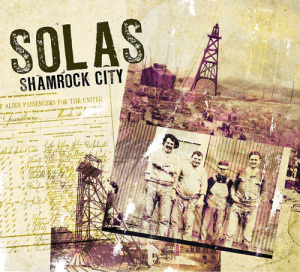
2013
Shamrock City
In 1910, Solas band leader Seamus Egan's great-great uncle Michael Conway left his home in Co. Mayo, Ireland and boarded a ship for America. He was headed to the copper mines and boxing rings of Butte, Montana, aka Shamrock City (named so for the influx of Irish immigrants). Six years later, at the age of 25 and in a cloud of mystery, Michael was dead at the hands of local police.
Shamrock City as seen through the eyes of Michael, tells the story of the thousands of young men and women who left behind their homes and families for "the Richest Hill on Earth". It reveals their spirit, tenacity and humor, but also the hardships they faced: discrimination, corruption within the mining companies, an unknown and unforgiving land, a system that valued the few over the many. One hundred years later, it's their story, but the struggles of the working class and immigrants are... (Continues)
Shamrock City
In 1910, Solas band leader Seamus Egan's great-great uncle Michael Conway left his home in Co. Mayo, Ireland and boarded a ship for America. He was headed to the copper mines and boxing rings of Butte, Montana, aka Shamrock City (named so for the influx of Irish immigrants). Six years later, at the age of 25 and in a cloud of mystery, Michael was dead at the hands of local police.
Shamrock City as seen through the eyes of Michael, tells the story of the thousands of young men and women who left behind their homes and families for "the Richest Hill on Earth". It reveals their spirit, tenacity and humor, but also the hardships they faced: discrimination, corruption within the mining companies, an unknown and unforgiving land, a system that valued the few over the many. One hundred years later, it's their story, but the struggles of the working class and immigrants are... (Continues)
Oh my name is Michael Conway, in old Ireland I was born
(Continues)
(Continues)
Contributed by DoNQuijote82 2013/9/21 - 17:39
Song Itineraries:
The War of Labour: Emigration, Immigration, Exploitation, Slavery
Far Amerikay

2013
Shamrock City
In 1910, Solas band leader Seamus Egan's great-great uncle Michael Conway left his home in Co. Mayo, Ireland and boarded a ship for America. He was headed to the copper mines and boxing rings of Butte, Montana, aka Shamrock City (named so for the influx of Irish immigrants). Six years later, at the age of 25 and in a cloud of mystery, Michael was dead at the hands of local police.
Shamrock City as seen through the eyes of Michael, tells the story of the thousands of young men and women who left behind their homes and families for "the Richest Hill on Earth". It reveals their spirit, tenacity and humor, but also the hardships they faced: discrimination, corruption within the mining companies, an unknown and unforgiving land, a system that valued the few over the many. One hundred years later, it's their story, but the struggles of the working class and immigrants are... (Continues)
Shamrock City
In 1910, Solas band leader Seamus Egan's great-great uncle Michael Conway left his home in Co. Mayo, Ireland and boarded a ship for America. He was headed to the copper mines and boxing rings of Butte, Montana, aka Shamrock City (named so for the influx of Irish immigrants). Six years later, at the age of 25 and in a cloud of mystery, Michael was dead at the hands of local police.
Shamrock City as seen through the eyes of Michael, tells the story of the thousands of young men and women who left behind their homes and families for "the Richest Hill on Earth". It reveals their spirit, tenacity and humor, but also the hardships they faced: discrimination, corruption within the mining companies, an unknown and unforgiving land, a system that valued the few over the many. One hundred years later, it's their story, but the struggles of the working class and immigrants are... (Continues)
I asked what he was thinking but he hadn’t much to say
(Continues)
(Continues)
Contributed by DoNQuijote82 2013/9/21 - 17:33
Song Itineraries:
The War of Labour: Emigration, Immigration, Exploitation, Slavery
Катюша

UCRAINO / UKRAINIAN
Versione ucraina da lyricstranslate.com. La traduzione è accompagnata da una trascrizioni in caratteri latini.
Ukrainian translation from lyricstranslate.com. The translation is followed by a transcription into Latin characters.
Ukrainian translation from lyricstranslate.com. The translation is followed by a transcription into Latin characters.
КАТЮША
(Continues)
(Continues)
Contributed by DQ82 2013/9/21 - 17:07
Катюша
TEDESCO / GERMAN [1]
Una versione tedesca da lyricstranslate.com. Qui non si tratta però di una traduzione "ad hoc" per il grande sito di traduzioni di canzoni: questa è una versione metrica, in rima, e pienamente cantabile. L'autore ci resta però sconosciuto.
A German translation from lyricstranslate.com. This is no "ad hoc" translation for the big song lyrics translation website: it's a metrically adjusted, rhyming and fully singable version. But the author remains unknown.
A German translation from lyricstranslate.com. This is no "ad hoc" translation for the big song lyrics translation website: it's a metrically adjusted, rhyming and fully singable version. But the author remains unknown.
KATJUSCHA
(Continues)
(Continues)
Contributed by DQ82 2013/9/21 - 17:06
Катюша
SVEDESE / SWEDISH
Versione svedese da lyricstranslate.com (e da sv.wikipedia)
Swedish translation reproduced from lyricstranslate.com (and from sv.wikipedia)
Katiusja eller Katjusja (ryska: Катюша) är en rysk sång av folksångskaraktär. Katiusja är ett kvinnligt förnamn motsvarande Kajsa eller lilla Katarina. Musiken komponerades 1938 av Matvej Blanter till text av Michail Isakovskij.
Melodin användes sedermera även till den populära italienska partisansången Fischia il vento.
Versione svedese da lyricstranslate.com (e da sv.wikipedia)
Swedish translation reproduced from lyricstranslate.com (and from sv.wikipedia)
Katiusja eller Katjusja (ryska: Катюша) är en rysk sång av folksångskaraktär. Katiusja är ett kvinnligt förnamn motsvarande Kajsa eller lilla Katarina. Musiken komponerades 1938 av Matvej Blanter till text av Michail Isakovskij.
Melodin användes sedermera även till den populära italienska partisansången Fischia il vento.
KATIUSJA
(Continues)
(Continues)
Contributed by DQ82 2013/9/21 - 17:04
Катюша
SLOVENO / SLOVENE
Versione slovena da lyricstranslate.com (e da sl.wikipedia). La versione è cantabile.
Slovene transation from Versione slovena da lyricstranslate.com (and from sl.wikipedia). The translation is fully singable.
Katjuša (rusko Катю́ша) je ruska vojna pesem o dekletu, hrepenečem po svojem ljubem, ki je v vojski. Katjuša je okrajšanka od imena Katarina (Екатерина).
Zložil jo je Matvej Blantner leta 1938, besedilo je napisal Mihail Izakovski. Prva jo je izvedla Lidija Ruslanova. Zmotno je mnenje, da je melodija Katjuše izvirno Blantnerjevo delo. Prvi jo je uporabil že Stravinski v operi Mavra (1922) in so jo kasneje priredili za Chanson Russe (1937).
Versione slovena da lyricstranslate.com (e da sl.wikipedia). La versione è cantabile.
Slovene transation from Versione slovena da lyricstranslate.com (and from sl.wikipedia). The translation is fully singable.
Katjuša (rusko Катю́ша) je ruska vojna pesem o dekletu, hrepenečem po svojem ljubem, ki je v vojski. Katjuša je okrajšanka od imena Katarina (Екатерина).
Zložil jo je Matvej Blantner leta 1938, besedilo je napisal Mihail Izakovski. Prva jo je izvedla Lidija Ruslanova. Zmotno je mnenje, da je melodija Katjuše izvirno Blantnerjevo delo. Prvi jo je uporabil že Stravinski v operi Mavra (1922) in so jo kasneje priredili za Chanson Russe (1937).
KATJUŠA
(Continues)
(Continues)
Contributed by DQ82 2013/9/21 - 17:01
Катюша
SERBO / SERBIAN
Versione serba da lyricstranslate.com (e da sr.wikipedia). Il testo è dato sia nell'alfabeto serbo-cirillico (ћирилица) sia in quello serbo-latino (latinica).
Serbian translation from lyricstranslate.com (and from sr.wikipedia). Lyrics are given both in the Serbian Cyrillic script (ћирилица) and in the Serbian latin script (latinica).
Каћуша (рус. Катюша) је руска песма о девојци која чезне за својим вољеним који је у војсци. Музику је 1938. године компоновао Матвеи Влантер док је речи написао Михаил Исаковски. Први пут ју је извела тада популарна певачица Лидија Русланова.
Каћуша је деминутив надимка имена Јекатарина (рус. Екатерина). У руском језику поред надимка многа имена имају и своје представнике у деминутиву. На пример деминутив од Наталија је Наташа, Сергеј је Серјожа итд. У случају Јекатерине, Каћа (рус. Катя) је надимак док је Каћуша деминутив.
По овој руској... (Continues)
Versione serba da lyricstranslate.com (e da sr.wikipedia). Il testo è dato sia nell'alfabeto serbo-cirillico (ћирилица) sia in quello serbo-latino (latinica).
Serbian translation from lyricstranslate.com (and from sr.wikipedia). Lyrics are given both in the Serbian Cyrillic script (ћирилица) and in the Serbian latin script (latinica).
Каћуша (рус. Катюша) је руска песма о девојци која чезне за својим вољеним који је у војсци. Музику је 1938. године компоновао Матвеи Влантер док је речи написао Михаил Исаковски. Први пут ју је извела тада популарна певачица Лидија Русланова.
Каћуша је деминутив надимка имена Јекатарина (рус. Екатерина). У руском језику поред надимка многа имена имају и своје представнике у деминутиву. На пример деминутив од Наталија је Наташа, Сергеј је Серјожа итд. У случају Јекатерине, Каћа (рус. Катя) је надимак док је Каћуша деминутив.
По овој руској... (Continues)
КАЋУША
(Continues)
(Continues)
Contributed by DQ82 2013/9/21 - 17:00
Катюша
ROMENO / ROMANIAN
Traduzione romena da lyricstranslate.com. Come d'abitudine, è stata ripristinata l'ortografia nazionale romena al posto del "romeno in Rete" scritto regolarmente senza segni diacritici.
Romanian translation from lyricstranslate.com. As usual, the Romanian national spelling has been restored in replacement of the so-called "Web Romanian" written without diacritics.
Katiușa (în rusă Катюша) este un cântec rus tradițional compus în 1938 de Mihail Isakovski (versurile) și Matvei Blanter (muzica).
Cântecul descrie dragostea dintre o fată și un soldat plecat pe front, care îi scrie și îi păstreaza cu grijă scrisorile. Cântecul, a cărui titlu este un diminutiv a prenumelui rus Ekaterina (Екатерина), a devenit unul dintre cele mai cunoscute cântece interpretate de soldații Armatei Roșii.
Traduzione romena da lyricstranslate.com. Come d'abitudine, è stata ripristinata l'ortografia nazionale romena al posto del "romeno in Rete" scritto regolarmente senza segni diacritici.
Romanian translation from lyricstranslate.com. As usual, the Romanian national spelling has been restored in replacement of the so-called "Web Romanian" written without diacritics.
Katiușa (în rusă Катюша) este un cântec rus tradițional compus în 1938 de Mihail Isakovski (versurile) și Matvei Blanter (muzica).
Cântecul descrie dragostea dintre o fată și un soldat plecat pe front, care îi scrie și îi păstreaza cu grijă scrisorile. Cântecul, a cărui titlu este un diminutiv a prenumelui rus Ekaterina (Екатерина), a devenit unul dintre cele mai cunoscute cântece interpretate de soldații Armatei Roșii.
KATYUSHA
(Continues)
(Continues)
Contributed by DQ82 2013/9/21 - 16:58
Катюша
PORTOGHESE / PORTUGUESE [1]
Versione portoghese riprodotta da wikipedia.pt
Portuguese translation reproduced from wikipedia.pt
Katyusha, em russo Катюша, é uma das mais conhecidas canções russas, da época da Segunda Guerra Mundial, sobre uma jovem e seu amado que participa da guerra em um local distante. A música foi composta em 1938 por Matvei Blanter e a letra escrita por Mikhail Isakovsky.
A canção se tornou popular na voz de Lidiya Ruslanova no final dos anos 1930. A cantora chegou a interpretá-la às portas do Reichstag destruído, após a Batalha de Berlim.
A melodia é utilizada na canção italiana da resistência anti-fascista, chamada "Fischia il vento".
Nos anos de guerra, uma estrofe tornou-se popular entre os soldados soviéticos:
Пусть «Фриц» помнит русскую «Катюшу»,
Пусть услышит, как она поет:
Из врагов вытряхивает души,
А своим отвагу придает!
Que "Fritz"¹ se lembre da "Katyusha" russa,
Que ele ouça, como ela canta:
Dos inimigos sacudindo a alma,
E lançando-a à sua coragem!
Versione portoghese riprodotta da wikipedia.pt
Portuguese translation reproduced from wikipedia.pt
Katyusha, em russo Катюша, é uma das mais conhecidas canções russas, da época da Segunda Guerra Mundial, sobre uma jovem e seu amado que participa da guerra em um local distante. A música foi composta em 1938 por Matvei Blanter e a letra escrita por Mikhail Isakovsky.
A canção se tornou popular na voz de Lidiya Ruslanova no final dos anos 1930. A cantora chegou a interpretá-la às portas do Reichstag destruído, após a Batalha de Berlim.
A melodia é utilizada na canção italiana da resistência anti-fascista, chamada "Fischia il vento".
Nos anos de guerra, uma estrofe tornou-se popular entre os soldados soviéticos:
Пусть «Фриц» помнит русскую «Катюшу»,
Пусть услышит, как она поет:
Из врагов вытряхивает души,
А своим отвагу придает!
Que "Fritz"¹ se lembre da "Katyusha" russa,
Que ele ouça, como ela canta:
Dos inimigos sacudindo a alma,
E lançando-a à sua coragem!
KATIUCHA
(Continues)
(Continues)
Contributed by CCG/AWS Staff 2013/9/21 - 16:57
Катюша
MACEDONE / MACEDONIAN
Versione macedone da lyricstranslate.com. La traduzione è accompagnata da una trascrizione in caratteri latini.
Macedonian translation from lyricstranslate.com. The translation is followed by a transcription into Latin characters.
Macedonian translation from lyricstranslate.com. The translation is followed by a transcription into Latin characters.
КАЌУША
(Continues)
(Continues)
Contributed by DQ82 2013/9/21 - 16:55
Nuku pommiin
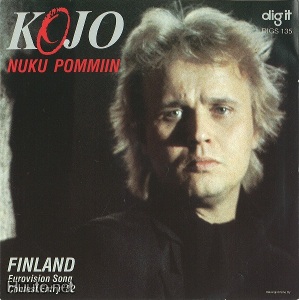
[1982]
European Song Festival 1982
Musica di Jim Pembroke
Testo di Juice Leskinen
Performed by: Kojo
Music by: Jim Pembroke
Lyrics by: Juice Leskinen
Conductor: Ossi Runne
Language: Finnish
Placing: 18th (0 points)
Il “Festival Europeo della Canzone”, più noto come “Eurofestival”, si svolge in Eurovisione da una barcata d'anni e in alcuni paesi, specialmente del Nordeuropa, è molto sentito. In questo sito ce ne siamo occupati non di rado, anche con notevoli fondamenti storici (ad esempio, all'Eurofestival del 1974 fu presentata la famosa E depois do adeus, la canzone portoghese di Paulo de Carvalho che fu scelta come “primo segnale” per la Rivoluzione dei Garofani del 25 aprile 1974). Soltanto una volta è stato vinto da una cantante italiana: Gigliola Cinquetti, che nel 1964 se lo aggiudicò con Non ho l'età (la primissima canzone che io abbia imparato da piccolissimo, ebbene... (Continues)
European Song Festival 1982
Musica di Jim Pembroke
Testo di Juice Leskinen
Performed by: Kojo
Music by: Jim Pembroke
Lyrics by: Juice Leskinen
Conductor: Ossi Runne
Language: Finnish
Placing: 18th (0 points)
Il “Festival Europeo della Canzone”, più noto come “Eurofestival”, si svolge in Eurovisione da una barcata d'anni e in alcuni paesi, specialmente del Nordeuropa, è molto sentito. In questo sito ce ne siamo occupati non di rado, anche con notevoli fondamenti storici (ad esempio, all'Eurofestival del 1974 fu presentata la famosa E depois do adeus, la canzone portoghese di Paulo de Carvalho che fu scelta come “primo segnale” per la Rivoluzione dei Garofani del 25 aprile 1974). Soltanto una volta è stato vinto da una cantante italiana: Gigliola Cinquetti, che nel 1964 se lo aggiudicò con Non ho l'età (la primissima canzone che io abbia imparato da piccolissimo, ebbene... (Continues)
Jos joku nakkaa ydinkakkaa kohta tänne Eurooppaamme
(Continues)
(Continues)
Contributed by Riccardo Venturi 2013/9/21 - 11:24
Катюша

KAZAKO / KAZAK
Versione kazaka da lyricstranslate.com. La traduzione è accompagnata da una trascrizione in caratteri latini secondo l' alfabeto ufficiale kazako-latino, basato in gran parte su quello turco (il kazako è una lingua di famiglia turca).
Kazak translation from lyricstranslate.com. The translation is followed by a transcription into Latin characters made according to the Latin Kazak official script, mostly based on the Turkish alphabet (Kazak is a Turkic language). [CCG/AWS Staff]
Kazak translation from lyricstranslate.com. The translation is followed by a transcription into Latin characters made according to the Latin Kazak official script, mostly based on the Turkish alphabet (Kazak is a Turkic language). [CCG/AWS Staff]
КАТЮША
(Continues)
(Continues)
Contributed by DQ82 2013/9/21 - 09:50
Катюша

INGLESE / ENGLISH [1]
Versione letterale inglese (della canzone originale) da lyricstranslate.com.
English (literal) translation of the original song from lyricstranslate.com.
"Katyusha," also transliterated "Katusha" or "Katjusha," (Russian: Катю́ша) is a Russian wartime song composed in 1938 by [Matvei Blanter with lyrics from Mikhail Isakovsky. Written just before World War II, the song depicts a girl longing for her fighting military husband. The song quickly became popular throughout the USSR. Its first official performance was by Valentina Batishcheva in the Column Hall of Moscow's House of the Unions. Later it was performed by Lidiya Ruslanova and other singers. Katyusha is a diminutive from the female name Ekaterina (Katherine). The song is the source of the nickname of the BM-8, BM-13, and BM-31 "Katyusha" rocket launchers that were used by the Red Army in World War II. In 1943,... (Continues)
Versione letterale inglese (della canzone originale) da lyricstranslate.com.
English (literal) translation of the original song from lyricstranslate.com.
"Katyusha," also transliterated "Katusha" or "Katjusha," (Russian: Катю́ша) is a Russian wartime song composed in 1938 by [Matvei Blanter with lyrics from Mikhail Isakovsky. Written just before World War II, the song depicts a girl longing for her fighting military husband. The song quickly became popular throughout the USSR. Its first official performance was by Valentina Batishcheva in the Column Hall of Moscow's House of the Unions. Later it was performed by Lidiya Ruslanova and other singers. Katyusha is a diminutive from the female name Ekaterina (Katherine). The song is the source of the nickname of the BM-8, BM-13, and BM-31 "Katyusha" rocket launchers that were used by the Red Army in World War II. In 1943,... (Continues)
KATYUSHA
(Continues)
(Continues)
Contributed by DQ82 2013/9/21 - 09:49
Катюша
FRANCESE / FRENCH [1]
Versione letterale francese da lyricstranslate.com
French (literal) translation from lyricstranslate.com
Katioucha (en russe : Катюша) est une chanson russe devenue traditionnelle. Les paroles furent écrites en 1938 par Mikhaïl Issakovski, la musique par Matveï Blanter. La chanson originale évoque l'amour entre une jeune fille et un soldat parti au front qui lui écrit et dont elle conserve précieusement les lettres. Katioucha est un diminutif affectueux du prénom russe Ekaterina (Екатерина, Catherine). Pendant la Seconde Guerre mondiale, la chanteuse russe Lidia Rouslanova l'a régulièrement interprétée, entre autres, sur différents fronts russes pour soutenir le moral des troupes. En 1943, Felice Cascione écrivit sur la même mélodie un texte italien qui, sous le titre Fischia il vento (Le vent siffle), devint ainsi l'une des chansons les plus connues des résistants... (Continues)
Versione letterale francese da lyricstranslate.com
French (literal) translation from lyricstranslate.com
Katioucha (en russe : Катюша) est une chanson russe devenue traditionnelle. Les paroles furent écrites en 1938 par Mikhaïl Issakovski, la musique par Matveï Blanter. La chanson originale évoque l'amour entre une jeune fille et un soldat parti au front qui lui écrit et dont elle conserve précieusement les lettres. Katioucha est un diminutif affectueux du prénom russe Ekaterina (Екатерина, Catherine). Pendant la Seconde Guerre mondiale, la chanteuse russe Lidia Rouslanova l'a régulièrement interprétée, entre autres, sur différents fronts russes pour soutenir le moral des troupes. En 1943, Felice Cascione écrivit sur la même mélodie un texte italien qui, sous le titre Fischia il vento (Le vent siffle), devint ainsi l'une des chansons les plus connues des résistants... (Continues)
KATIOUCHA
(Continues)
(Continues)
Contributed by DQ82 2013/9/21 - 09:46
Катюша
CROATO / CROAT
Versione croata da lyricstranslate.com
Croatian translation from lyricstranslate.com
Kaćuša (ili Katjuša) (rus.: Катюша) je ruska ratna pjesma o djevojci koja čezne za svojim dragim, koji je na bojišnici. Glazbu je 1938. skladao Matvej Blatner, a tekst je napisao Mihail Isakovskij. Prvi put ju je izvela slavna ruska narodna pjevačica, Lidija Ruslanova. Neki kritičari vjeruju da Kaćuša ipak nije Blatnerova skladba, ukazujući na to da se u operi Mavra (1922.) Igora Stravinskog pojavljuje slična glazbena tema koja je kasnije uklopljena u Chanson Russe (1937.)
"Kaćuša" je zapravo deminutiv iz dragosti imena Ekaterina (Katarina). U ruskom jeziku mnoga imena imaju takve deminutive (uz nadimke). Na primjer, nadimak imena Natalija je Nataša, a dodatni deminutiv je Natašenka. U slučaju Ekaterine, Katja je nadimak, a deminutiv je Kaćuša.
Po ovoj pjesmi ime su dobili i Kaćuša raketni... (Continues)
Versione croata da lyricstranslate.com
Croatian translation from lyricstranslate.com
Kaćuša (ili Katjuša) (rus.: Катюша) je ruska ratna pjesma o djevojci koja čezne za svojim dragim, koji je na bojišnici. Glazbu je 1938. skladao Matvej Blatner, a tekst je napisao Mihail Isakovskij. Prvi put ju je izvela slavna ruska narodna pjevačica, Lidija Ruslanova. Neki kritičari vjeruju da Kaćuša ipak nije Blatnerova skladba, ukazujući na to da se u operi Mavra (1922.) Igora Stravinskog pojavljuje slična glazbena tema koja je kasnije uklopljena u Chanson Russe (1937.)
"Kaćuša" je zapravo deminutiv iz dragosti imena Ekaterina (Katarina). U ruskom jeziku mnoga imena imaju takve deminutive (uz nadimke). Na primjer, nadimak imena Natalija je Nataša, a dodatni deminutiv je Natašenka. U slučaju Ekaterine, Katja je nadimak, a deminutiv je Kaćuša.
Po ovoj pjesmi ime su dobili i Kaćuša raketni... (Continues)
KATJUŠA
(Continues)
(Continues)
Contributed by DoNQuijote82 2013/9/21 - 09:45
Катюша
CECO / CZECH
Versione ceca da lyricstranslate.com
Czech translation from lyricstranslate.com
Kaťuša (rusky Катюша) je sovětská válečná píseň o dívce, která čeká na svého mládence, který byl odveden do války. Hudbu složil roku 1938 Matvěj Blantěr a slova k ní napsal Michal Isakovskij. Poprvé ji zazpívala zpěvačka Valentina Batiščevská 27. listopadu 1938, ale opravdovou proslulost jí zajistila až známá zpěvačka lidových písní Lidija Ruslanová, která ji zpívala i sovětským vojákům na východní frontě během Velké vlastenecké války. Dle tvrzení některých kritiků není Kaťuša Blandtěrovým dílem, protože podobnou melodii složil Igor Fjodorovič Stravinskij do své opery Mavra už v roce 1922.
Kaťuša je zdrobnělina jména Kaťa, jde o zdrobnělinu ženského křestního jména Jekatěrina (česky Kateřina).
Píseň také dala jméno sovětským raketometům BM-8, BM-13, a „BM 13-16“, které zkonstruovala Rudá armáda během Druhé světové války.
Versione ceca da lyricstranslate.com
Czech translation from lyricstranslate.com
Kaťuša (rusky Катюша) je sovětská válečná píseň o dívce, která čeká na svého mládence, který byl odveden do války. Hudbu složil roku 1938 Matvěj Blantěr a slova k ní napsal Michal Isakovskij. Poprvé ji zazpívala zpěvačka Valentina Batiščevská 27. listopadu 1938, ale opravdovou proslulost jí zajistila až známá zpěvačka lidových písní Lidija Ruslanová, která ji zpívala i sovětským vojákům na východní frontě během Velké vlastenecké války. Dle tvrzení některých kritiků není Kaťuša Blandtěrovým dílem, protože podobnou melodii složil Igor Fjodorovič Stravinskij do své opery Mavra už v roce 1922.
Kaťuša je zdrobnělina jména Kaťa, jde o zdrobnělinu ženského křestního jména Jekatěrina (česky Kateřina).
Píseň také dala jméno sovětským raketometům BM-8, BM-13, a „BM 13-16“, které zkonstruovala Rudá armáda během Druhé světové války.
KAT'UŠA
(Continues)
(Continues)
Contributed by DoNQuijote82 2013/9/21 - 09:44
Dym
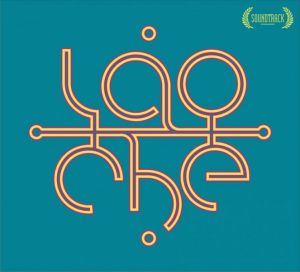
[2012}
Testo: Hubert "Spięty" Dobaczewski
Musica: Lao Che
Album: „Soundtrack”
Le opere del collettivo Lao Che vengono create un po' a mo' delle creazioni dei rappers, sono i "beat incollati", come si suoleva a dire una volta da noi. In questo pezzo viene addoperato un riff celeberrimo (che in questo momento non mi ricordo di preciso da dove provenga), e anche il testo riporta le parafrasi di proverbi molto conosciuti in Polonia.
Testo: Hubert "Spięty" Dobaczewski
Musica: Lao Che
Album: „Soundtrack”
Le opere del collettivo Lao Che vengono create un po' a mo' delle creazioni dei rappers, sono i "beat incollati", come si suoleva a dire una volta da noi. In questo pezzo viene addoperato un riff celeberrimo (che in questo momento non mi ricordo di preciso da dove provenga), e anche il testo riporta le parafrasi di proverbi molto conosciuti in Polonia.
- Rzuciłem palenie i kościół też
(Continues)
(Continues)
Contributed by Krzysiek Wrona 2013/9/21 - 02:25
Είσαι εδώ (Οι Κυριακές άλλαξαν χρώμα)

Eísai edó (Oi Kyriakés állaxan hróma)
[2005]
Στίχοι και μουσική: Παύλος Φύσσας (Killah P)
'Αλμπουμ: Υπόγειος Σύνδεσμος
Ερμηνεία Killah P. feat VERSA, Σταμος, 69.
Testo e musica di Pavlos Fyssas (Killah P)
Album: Υπόγειος Σύνδεσμος (Collegamento sotterraneo)
Interprete: Killah P. feat VERSA, Stamos, 69.
"Με ένα δικό του τραγούδι οι φίλοι λένε το τελευταίο αντίο στον αδικοχαμένο Παύλο Φύσσα ή Killah P. Η μουσική είναι του Killah P., όπως και οι στίχοι, οι οποίοι αναφέρονται σε ένα φίλο του που είχε χάσει τη ζωή του σε τροχαίο δυστύχημα."
“Con una sua canzone gli amici danno l'ultimo saluto a Pavlos Fyssas, Killah P, morto ingiustamente. La musica è di Killah P e così anche il testo, che si riferisce a un suo amico che aveva perso la vita in un incidente stradale.”
Il brano di Killah P, del 2005, era stato inviato al sito da Giuseppina Dilillo il 20 settembre 2013, tre giorni dopo... (Continues)
[2005]
Στίχοι και μουσική: Παύλος Φύσσας (Killah P)
'Αλμπουμ: Υπόγειος Σύνδεσμος
Ερμηνεία Killah P. feat VERSA, Σταμος, 69.
Testo e musica di Pavlos Fyssas (Killah P)
Album: Υπόγειος Σύνδεσμος (Collegamento sotterraneo)
Interprete: Killah P. feat VERSA, Stamos, 69.
"Με ένα δικό του τραγούδι οι φίλοι λένε το τελευταίο αντίο στον αδικοχαμένο Παύλο Φύσσα ή Killah P. Η μουσική είναι του Killah P., όπως και οι στίχοι, οι οποίοι αναφέρονται σε ένα φίλο του που είχε χάσει τη ζωή του σε τροχαίο δυστύχημα."
“Con una sua canzone gli amici danno l'ultimo saluto a Pavlos Fyssas, Killah P, morto ingiustamente. La musica è di Killah P e così anche il testo, che si riferisce a un suo amico che aveva perso la vita in un incidente stradale.”
Il brano di Killah P, del 2005, era stato inviato al sito da Giuseppina Dilillo il 20 settembre 2013, tre giorni dopo... (Continues)
Ένα ποτό θολωμένο μυαλό κι η κακιά η στιγμή
(Continues)
(Continues)
Contributed by Giuseppina Dilillo - Ελληνικό Τμήμα των ΑΠΤ 2013/9/20 - 23:39
For Pavlos Fyssas, known as Killah P, the Greek rapper and antifascist militant killed by an armed band of Golden Dawn fascists. We started publishing and translating his songs, starting from Να με θυμάσαι (“Remember me”) and Σιγά μην κλάψω, σιγά μη φοβηθώ (“I won't cry, I won't fear”); others will be included soon. It's also for these songs, that Pavlos was killed.
Riccardo Venturi 2013/9/20 - 23:21
Il cane randagio
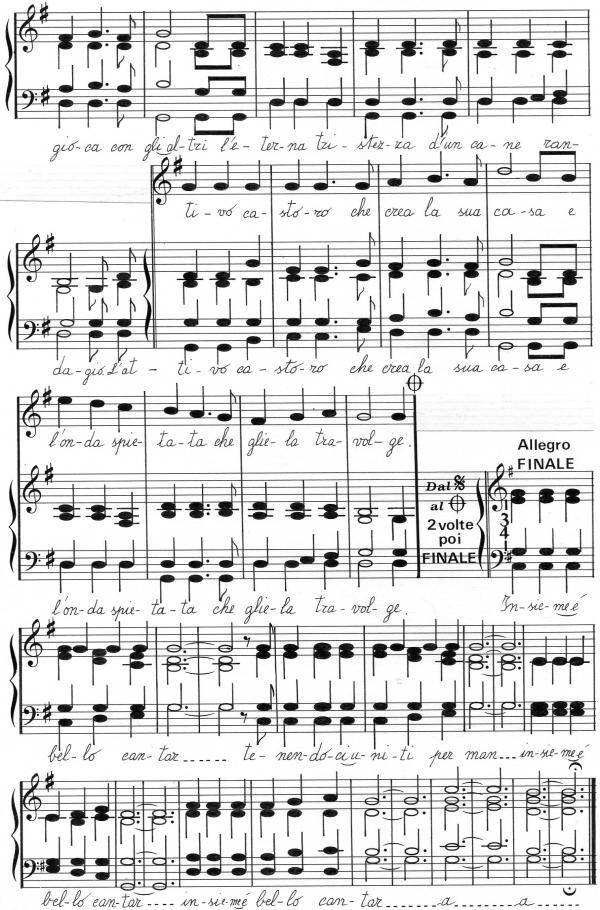
(canto friulano contro la guerra)
Versi, musica ed elaborazione corale di
Camillo BERARDI
Versi, musica ed elaborazione corale di
Camillo BERARDI
Insieme è bello cantar
(Continues)
(Continues)
Contributed by Camillo Berardi 2013/9/20 - 21:46
An allem sind die Juden schuld
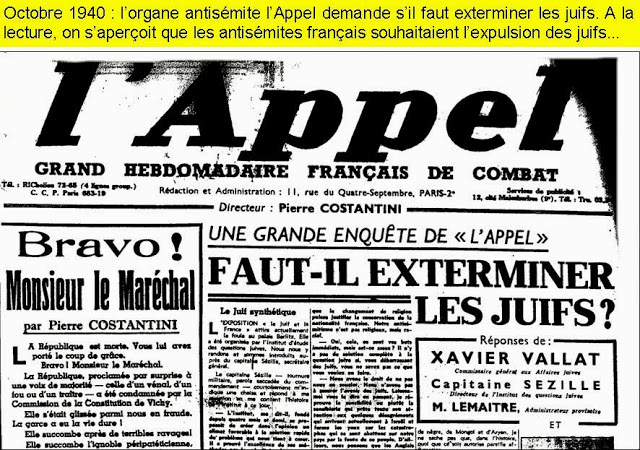
D'après la version italienne de Riccardo Venturi
Chanson allemande - An allem sind die Juden schuld - Friedrich Hollaender – 1931
Texte: Friedrich Hollaender
Musique: Georges Bizet (de la Carmen)
Première interprète: Annemarie Haase
De la revue Spuk in der Villa Stern ("Fantômes à la Villa Stern")
Dans cette page, nous nous occupons d'une chanson satirique, probablement une des plus célèbres en langue allemande: An allem sind die Juden schuld («Tout est la faute des Juifs»). Pas seulement célèbre, mais aussi réellement particulière sous chaque chacun de ses aspects; à commencer par son auteur, Friedrich Hollaender (1896-1976). Il n'arrive pas souvent que celui qui est connu (et il l'est resté) pour être un musicien de valeur soit connu pour avoir écrit le texte d'une chanson dont la musique est reprise en réalité d'un opéra, dans ce cas-ci, Carmen de Georges Bizet ; mais c'est le cas précisément... (Continues)
Chanson allemande - An allem sind die Juden schuld - Friedrich Hollaender – 1931
Texte: Friedrich Hollaender
Musique: Georges Bizet (de la Carmen)
Première interprète: Annemarie Haase
De la revue Spuk in der Villa Stern ("Fantômes à la Villa Stern")
Dans cette page, nous nous occupons d'une chanson satirique, probablement une des plus célèbres en langue allemande: An allem sind die Juden schuld («Tout est la faute des Juifs»). Pas seulement célèbre, mais aussi réellement particulière sous chaque chacun de ses aspects; à commencer par son auteur, Friedrich Hollaender (1896-1976). Il n'arrive pas souvent que celui qui est connu (et il l'est resté) pour être un musicien de valeur soit connu pour avoir écrit le texte d'une chanson dont la musique est reprise en réalité d'un opéra, dans ce cas-ci, Carmen de Georges Bizet ; mais c'est le cas précisément... (Continues)
TOUT EST LA FAUTE DES JUIFS
(Continues)
(Continues)
Contributed by Marco Valdo M.I. 2013/9/20 - 15:48
Tutta colpa degli ebrei? La tecnica del capro espiatorio
Antiwar Songs Blog

Una canzone satirica, probabilmente una delle più famose in assoluto in lingua tedesca: An allem sind die Juden schuld (“È tutta colpa degli ebrei”). Non soltanto famosa, ma anche decisamente particolare sotto ogni suo aspetto; a cominciare dal suo autore, Friedrich Hollaender (1896-1976). Non capita spesso che chi è noto (e lo è rimasto) per […]
Antiwar Songs Staff 2013-09-20 14:35:00
Tell Me Why

Why, why, why, why, why. Why
(Continues)
(Continues)
2013/9/20 - 14:20
Song Itineraries:
September, 11: Attack on New York
Renzino

la storia bisognerebbe conoscerla meglio e dal di dentro....la vostra ricostruzione dei fatti e faziosa e politicamente scorretta....
saluti da un civitellino che sa come andarono i fatti
saluti da un civitellino che sa come andarono i fatti
civitellino doc 2013/9/19 - 17:52
Rosa

da "Vol. 2 - Poveri Cristi" (2011)
Rosa non piangere dai
(Continues)
(Continues)
2013/9/19 - 15:32
Song Itineraries:
The War of Labour: Emigration, Immigration, Exploitation, Slavery
Don Juan
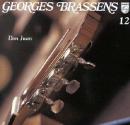
Ciao Paola, certo che ci interessa, e ci interessano anche le altre traduzioni di Alberto delle canzoni presenti in raccolta. Se ci puoi mandare il testo ci farai molto piacere.
CCG Staff 2013/9/19 - 10:59
×
![]()

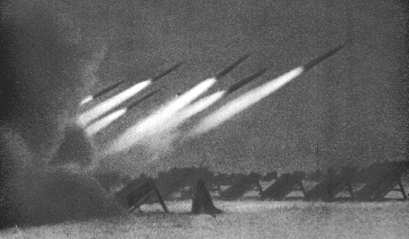
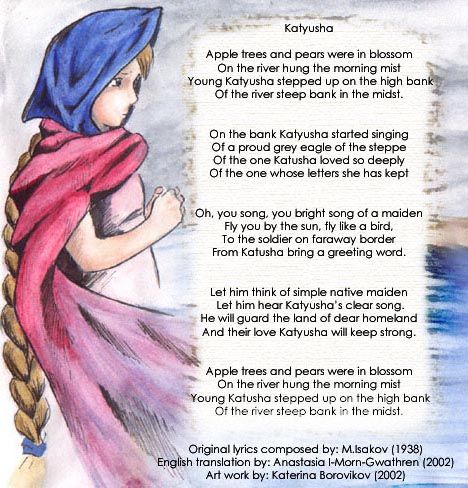



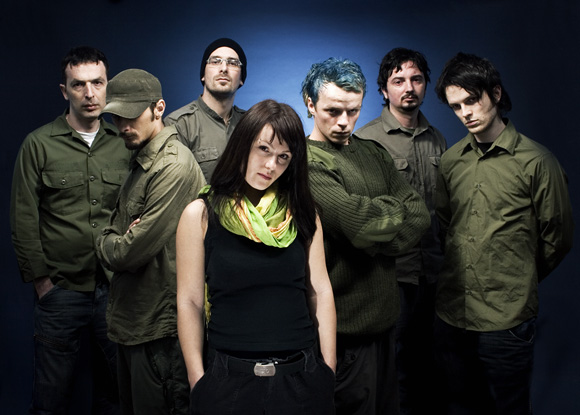


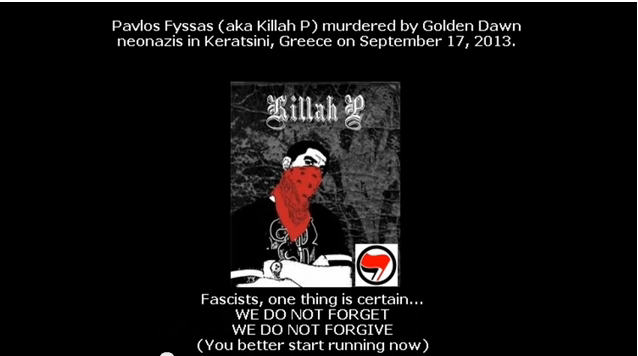
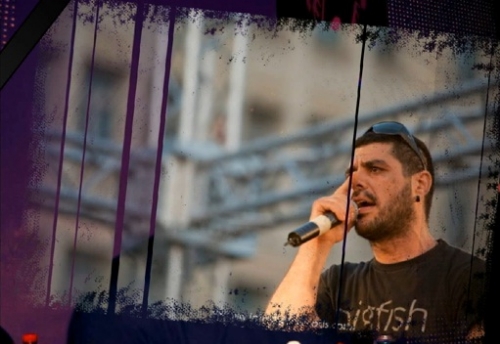
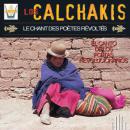
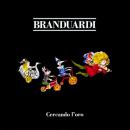
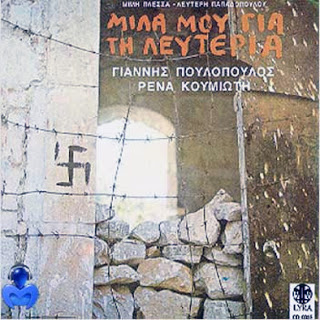
La versione polacca di Bogdan Żyranik da pl.wikipedia.
Polish translation (by Bogdan Żyranik) from pl.wikipedia.
Katiusza (Катюша) – radziecka żołnierska piosenka o dziewczynie (tytułowej Katiuszy) tęskniącej do ukochanego, który jest daleko "na pograniczu". "Katiusza" nie jest piosenką ludową jak Kalinka czy Snieg krużytsia (Śnieg wiruje). Muzykę skomponował w 1938 roku Matwiej Blanter, a słowa napisał Michaił Isakowski. Pierwszy raz wykonała ją Walentyna Batiszczewa 27 listopada 1938 na koncercie w Sali Kolumnowej Moskiewskiego Domu Związkowego. Batiszczewa była solistką tzw. "Gosdżazu", orkiestry założonej na polecenie partii dla przeciwdziałania docierającym z Zachodu wzorom muzyki popularnej. Miała powstać w ZSRR pieśń masowa nowego typu. Lidia Rusłanowa, znana wykonawczyni rosyjskich pieśni ludowych, rozsławiła później piosenkę swoimi wykonaniami. Rusłanowa wykonywała... (Continues)